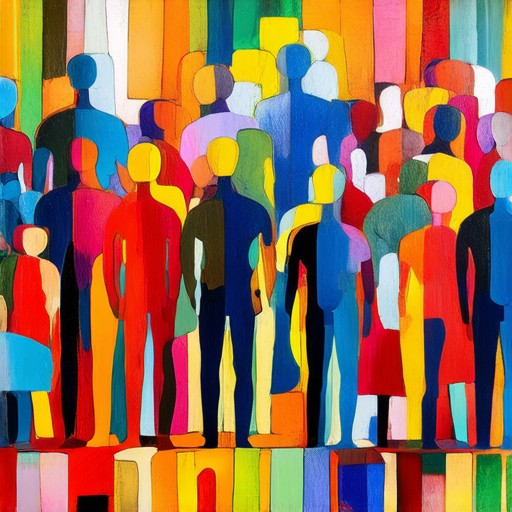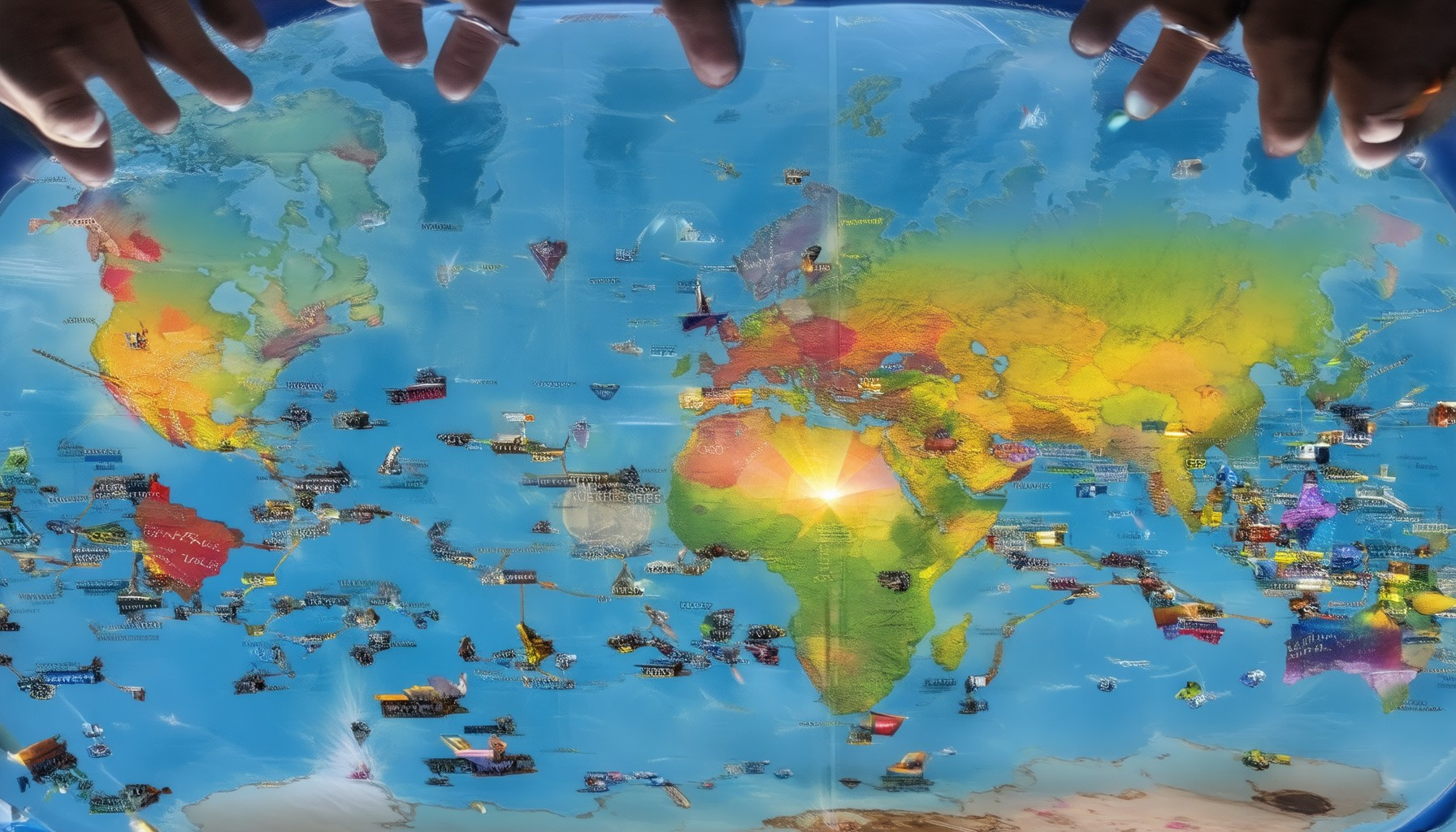In an increasingly interconnected world, international cultural exchange has emerged as a powerful tool for bridging gaps between people of diverse backgrounds. By fostering mutual respect and understanding, cultural exchange programs offer unique opportunities for individuals to explore new perspectives and strengthen global connections. From student exchange programs to collaborative initiatives, these platforms facilitate meaningful interactions that contribute to building a more harmonious international community. Whether through educational exchanges, artistic collaborations, or diplomatic efforts, cultural exchange plays a pivotal role in shaping cross-border relationships and promoting global unity. This article delves into the intricacies of international cultural exchange, exploring its definition, significance, and the various programs that make it accessible to individuals and organizations worldwide. By examining real-world examples and highlighting the transformative potential of cultural exchange, this piece aims to provide insights into its impact on international relations and the benefits it offers to participants.
Key Takeaways
- Cultural Exchange Pivotal for Global Connections: Establishing bridges between nations through shared traditions and beliefs, fostering international cooperation.
- International Exchanges Offer Transformative Power: Providing life-changing opportunities for personal growth and career advancement.
- Diverse Exchange Types Cater to Varying Interests: Including educational, cultural, and professional opportunities tailored to individual goals.
- Multifaceted International Cultural Relations: Encompassing education, trade, tourism, and global collaborations to drive mutual understanding.
- Cultural Exchange as Soft Diplomacy: Strengthening bilateral relationships and promoting global unity through shared experiences.
- Enriching Lives and Building Inclusive Communities: Cultural exchange contributes to harmonious global societies and addresses diverse challenges.
- Empowering Individuals and Societies: International cultural relations enable thriving in a diverse world, driving shared prosperity.

What is the Meaning of International Cultural Exchange?
International cultural exchange refers to the process of sharing and exchanging cultural practices, traditions, and knowledge between individuals from diverse backgrounds. This exchange fosters mutual understanding, respect, and appreciation for different cultures, contributing to global harmony and development.
Key Aspects of International Cultural Exchange
- Mutual Learning : Participants gain insights into the customs, languages, and social norms of other nations, enriching their personal and professional growth.
- Respect and Tolerance : Engaging in cultural exchange encourages open-mindedness and acceptance of differences, promoting a more inclusive society.
- Global Awareness : By experiencing various cultures, individuals develop a broader perspective on global issues and societal structures.
Types of International Cultural Exchange
- Educational Exchanges : Programs like student or teacher exchanges allow direct interaction and knowledge-sharing in educational settings.
- Workplace Exchange : Employees from different countries working together in multinational companies foster cross-cultural collaboration.
- Volunteer Abroad : Initiatives like international aid missions enable individuals to contribute to community development while immersed in a foreign culture.
Benefits of Cultural Exchange
- Empathy and Understanding : Enhanced ability to connect with diverse groups, reducing cultural conflicts.
- Economic Growth : Exposure to different markets and business practices can stimulate trade and innovation.
- Social Progress : Promotes unity and reduces prejudices, contributing to a more tolerant world.
Real-World Examples
- International Students : Students from various countries attending universities abroad share their cultures, leading to cultural exchange events.
- Peace Corps Volunteers : Individuals serving in developing countries engage in community projects, fostering cultural interactions.
Challenges in Cultural Exchange
- Communication Barriers : Language differences and cultural misunderstandings can hinder effective communication.
- Cultural Sensitivity : Ensuring respectful and appropriate interactions requires careful consideration of local customs.
How to Engage in Cultural Exchange
- Volunteer Overseas : Participate in organizations that facilitate cultural immersion and community development.
- Study Abroad : Enroll in educational programs that offer opportunities to live and learn in foreign environments.
- Join Cultural Organizations : Become part of groups that organize cultural exchange events and initiatives.
By embracing international cultural exchange, we can bridge gaps and create a more connected, compassionate world. Explore opportunities to participate in meaningful cultural experiences and contribute to building a brighter future through global connections.
Example of Cultural Exchange
Cultural exchange occurs when individuals from different backgrounds interact, share traditions, and learn from one another. One notable example is the global celebration of diversity through international events like the FIFA World Cup or the Venice Biennale Art Fair. These platforms bring people from various countries to engage in shared experiences, fostering mutual respect and understanding.
Another example is the student exchange program , where high school students from different nations live with host families to experience daily life and customs firsthand. This immersive approach allows participants to appreciate the nuances of a foreign culture, such as diet, language, and social norms.
Additionally, organizations like Workaway International facilitate cultural exchange by connecting volunteers with families worldwide, enabling them to participate in local activities and traditions. This interaction often leads to lasting friendships and a deeper appreciation for diverse lifestyles.
Lastly, language immersion programs provide opportunities for learners to immerse themselves in a foreign culture, attending local schools and community events to practice their skills while experiencing authentic cultural practices.

Is AfS a Good Exchange Program?
American Field Service (AFS) is widely regarded as one of the most reputable exchange programs globally. Below are key reasons why AFS stands out:
- Cultural Immersion: AFS excels in fostering deep cultural understanding through homestays with local families, allowing participants to experience authentic daily life and traditions.
- Educational Opportunities: Students gain access to high-quality education in English-speaking countries, enhancing their academic skills and broadening their worldview.
- Supportive Network: AFS provides extensive pre-departure preparation, ongoing mentorship, and access to a global alumni network for career building and peer support.
- Diverse Host Countries: Participants can choose from numerous destinations, offering unique cultural experiences and opportunities for personal growth.
- Academic and Career Benefits: AFS programs are recognized by universities worldwide, making them a valuable asset for college applications and future careers.
Whether you’re considering a high school exchange or a gap year program, AFS offers transformative experiences that blend education, culture, and personal development. Their commitment to student success makes them a top choice for international exchange.

Cultural Exchange in International Relations
Cultural exchange is a cornerstone of international relations, fostering mutual understanding and cooperation among nations. It involves the sharing of traditions, beliefs, and practices, enabling individuals to appreciate diverse perspectives and build bridges across borders.
The process of cultural exchange often occurs through various channels:
- Cultural Dialogue: Engaging in conversations, art, music, and literature to share and learn about different cultures.
- Educational Initiatives: Schools, universities, and cultural institutions organize programs to promote cross-cultural understanding and exchange.
- International Organizations: Groups like the United Nations and UNESCO facilitate cultural exchange programs and collaborations.
- Volunteer Work: NGOs and volunteer organizations enable cultural exchange through projects that bring people from different backgrounds together.
- Economic Exports: Countries leverage their cultural products, such as films, music, and art, to foster international connections and economic growth.
Cultural exchange also plays a vital role in diplomacy. By participating in cultural activities, countries can strengthen bilateral relationships and create lasting partnerships. For instance, festivals, trade shows, and collaborative projects often serve as platforms for cultural exchange, promoting mutual respect and global harmony.
Inxchan, a travel and volunteer-focused platform, emphasizes the transformative power of cultural exchange through its stories and guides. It encourages travelers and volunteers to immerse themselves in new cultures, fostering meaningful connections and contributing to global awareness.
By embracing cultural exchange, we not only enrich our own lives but also contribute to building a more inclusive and harmonious world. It is a testament to humanity’s ability to connect and grow together, despite our differences.
What is an International Exchange?
An international exchange refers to a program or initiative that facilitates cultural, educational, or professional interactions between individuals from different countries. These exchanges often aim to foster mutual understanding, collaboration, and personal growth through shared experiences.
At Inxchan, we believe that international exchanges play a vital role in bridging gaps between cultures. By offering unique opportunities to travel, volunteer, and work abroad, these exchanges enable individuals to gain valuable life experiences, enhance their skills, and contribute to global communities.
Whether it’s teaching English in Thailand, volunteering in Ghana, or interning in Japan, international exchanges provide a platform for participants to immerse themselves in new environments and make meaningful connections. These experiences often lead to personal growth, career advancement, and a deeper appreciation for diverse perspectives.
Types of International Exchanges
- Educational Exchanges: Programs that allow students to study or intern abroad, such as those offered by universities or organizations like GoAbroad .
- Cultural Exchanges: Opportunities for individuals to live with host families, participate in cultural festivals, or engage in community service projects, as promoted by platforms like Workaway .
- Professional Exchanges: Career-related programs that facilitate job shadowing, networking, or temporary work abroad, often facilitated by organizations such as Indeed .
Inxchan encourages everyone to explore these opportunities and take advantage of the wealth of resources available on our platform. From travel guides to volunteer abroad programs, Inxchan is here to help you find the perfect international exchange experience.

Understanding International Cultural Relations
International cultural relations refer to the interactions, exchanges, and collaborations between individuals, groups, and nations from different cultural backgrounds. These relations are shaped by a variety of factors, including education, trade, tourism, and global organizations, all aimed at fostering mutual understanding and cooperation.
Key Aspects of International Cultural Relations
- Cultural Exchange :
- Programs like student exchanges, collaborative projects between artists, and cultural festivals facilitate the sharing of traditions, languages, and customs.
- These exchanges often serve as platforms for soft diplomacy, where cultural engagement contributes to building positive international relations.
- Tourism and Travel :
- Tourism plays a significant role in cultural relations, as traveling exposes individuals to diverse cultures, promoting mutual appreciation and understanding.
- Cultural tourism initiatives encourage visitors to engage with local traditions, history, and lifestyle, enriching both travelers and host communities.
- Trade and Business Interactions :
- Businesses operating internationally must navigate cultural differences in marketing, communication, and consumer behavior.
- Successful international trade often relies on understanding and respecting cultural nuances, which fosters stronger business relationships.
- Education and Collaboration :
- International educational partnerships enable students and scholars to study and collaborate across borders, fostering cross-cultural communication skills.
- Universities and colleges often serve as hubs for cultural exchange programs, preparing future leaders to thrive in diverse global environments.
- Global Organizations and Initiatives :
- Organizations like the United Nations and UNESCO promote international cultural cooperation, addressing issues such as migration, human rights, and cultural preservation.
- These efforts highlight the importance of cultural relations in addressing global challenges and fostering peaceful coexistence.
- Art, Media, and Technology :
- The global reach of art, film, music, and literature facilitates cultural understanding and appreciation.
- Platforms like social media and streaming services allow for widespread dissemination of cultural content, bridging gaps between diverse audiences.
- Heritage Preservation :
- International cooperation in preserving shared heritage ensures that cultural legacy is protected and accessible to future generations.
- Collaborative efforts in archaeology, conservation, and digital archiving safeguard cultural assets, fostering a sense of collective humanity.
- Technology and Innovation :
- Cross-border collaboration in technology and innovation brings together diverse teams to tackle global challenges.
- This teamwork often leads to groundbreaking solutions, benefiting industries and societies worldwide.
The Impact of International Cultural Relations
By promoting mutual respect, understanding, and cooperation, international cultural relations contribute to a more interconnected and harmonious world. They empower individuals to appreciate diverse perspectives, support global businesses in navigating cultural complexities, and address pressing global issues through collaborative efforts. Ultimately, these relations are essential for building a more inclusive and prosperous international community.





0 Comments